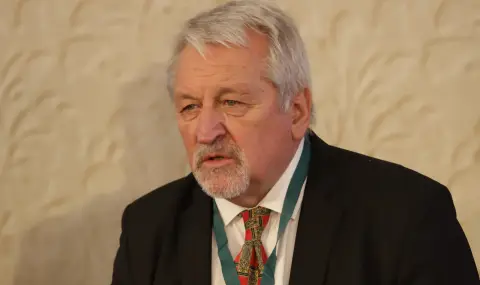The Ministry of Energy does not realize what upheavals the complete market liberalization. This is what Ivan Hinovski, chairman of the Bulgarian Energy and Mining Forum, told BNR.
"Liberalization cannot be postponed beyond the middle of 2026. Funds are stopping us, it cannot be any longer, we have already postponed it twice. We can organize this process to be smooth and cost the least for both industry and households," commented the energy expert.
The Bulgarian Energy and Mining Forum has issued a statement that defines as criminal irresponsibility "the inaction of the management of the energy industry with regard to the preparation for the full liberalization of the electricity market and the public debate on the subject":
"We are extremely disturbed by the lack of clarity and public awareness of the preparation of the country and the population for this difficult and critical transition in the Bulgarian energy and economy. As it soon became known, Bulgaria is among the first places in Europe for the impossibility of maintaining normal temperature conditions in the homes of EU citizens with just over 20% of households, according to Eurostat data for 2023. The main reason is the low standard of living of a large part of the population, the basis of which is energy poverty and the inability to cover energy costs, regardless of the fact that Bulgaria has the lowest electricity prices in the Union.
This process will significantly deepen after the full liberalization of the electricity market, postponed again to 2026, without any preparatory and protective measures by the state leadership that we are witnessing today.
The free period for household consumers to switch to the free market was postponed again to July 1, 2026 by the 49th National Assembly on the eve of the early elections on June 9, 2024. There were several reasons, but the main one was the accumulated deficit in the Fund “Security of the electricity system”, which was supposed to cover the difference between the market prices of electricity and the “saving“ household users lower levels.
The other missing element in the transition puzzle is the lack of clarity according to which procedures and criteria will categorize and support the energy poor and energy vulnerable population groups. Due to ongoing political instability, the necessary regulatory framework has not yet been developed to make the transition without market shocks for both people and energy companies.
Bulgarian households spend an average of 13.5% of their total expenditure on energy, with the largest part of energy expenditure being on electricity - 60.7 percent, economists from the World Bank pointed out in their report to the Economic and Social advice. The World Bank draws attention to the fact that the prevalence of energy poverty in our country is high compared to EU standards and is greater among the poor. Experts recommend clearly identifying households affected by energy poverty, as only then can adequate policies be introduced to address the problem.
Despite these alarm messages, the leadership of the “Energy“ continues to maintain an irresponsible policy of non-transparency that is unclear to the public.
The lack of response to BEMF's proposal to organize a national round table together with a number of nationally responsible organizations such as trade unions, BAS and the “Active Users” Association remains inexplicable. The three groups of questions we propose below would go a long way in clarifying the issues and reducing the risks:
1) Concept, conditions and obstacles to a successful transition: institutionalization of the process of registering energy-poor households, solving the problems of electricity supply companies, determining the role of state institutions, municipalities, mediators and public media.
2) Applicable commercial models and participants in the process of liberalization of the retail energy market – status of adopted regulatory documents, necessary changes in the regulatory framework, responsible parties, deadlines, risks and their management.
3) Types of commercial contracts – general and specific conditions, forms of compensation for energy poor households, procedures of communication with consumers. Modeling different scenarios.
Within a national campaign, the Bulgarian society should be presented with objective information about the road map of this transition, the potential risks should be communicated to them and the foundations should be laid for building an initial market culture of household consumers on the subject.
The media have a key role for the successful transition during this risky period for the society and their mission is not to instill unknowns and fears, but to cooperate by attracting competent persons for comments on the subject, and to partner with the state in conducting its energy policy. The other is public irresponsibility and gaining hollow ratings by speculating on public fears.
